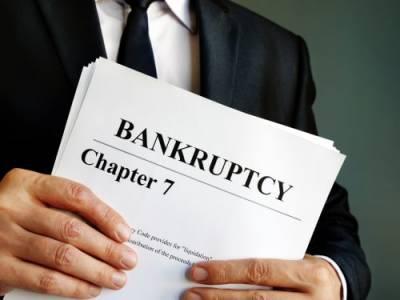 312-704-0771
312-704-0771
When Can a Creditor Object to a Chapter 7 Bankruptcy?
 When a debtor files for Chapter 7 bankruptcy, creditors may be concerned about their ability to collect what is owed to them. In some situations, a creditor may be able to pursue an objection and challenge the debtor's right to a discharge of debts in a Chapter 7 bankruptcy. If the objection is successful, the debt owed to that creditor will not be discharged in the bankruptcy, and the creditor can continue to collect the debt from the debtor.
When a debtor files for Chapter 7 bankruptcy, creditors may be concerned about their ability to collect what is owed to them. In some situations, a creditor may be able to pursue an objection and challenge the debtor's right to a discharge of debts in a Chapter 7 bankruptcy. If the objection is successful, the debt owed to that creditor will not be discharged in the bankruptcy, and the creditor can continue to collect the debt from the debtor.
What Are the Grounds for Objecting to a Chapter 7 Bankruptcy Discharge?
Section 727 of the Bankruptcy Code details several reasons that creditors can object to a Chapter 7 discharge. Reasons that a creditor may object include:
- Fraud - Attempts by a debtor to defraud a creditor may result in the dismissal of a bankruptcy case. These may include attempts to conceal assets that could be seized by the bankruptcy trustee and liquidated to repay creditors, as well as improper transfers of assets to other parties within one year before filing for bankruptcy.
- Failure to preserve records - A bankruptcy case requires the debtor to provide documentation and keep records pertaining to their financial situation. If a debtor has failed to keep proper records, or if they have destroyed relevant information, a creditor may object to the discharge of debts or ask for the case to be dismissed.
- Perjury - If a debtor has lied under oath, including during bankruptcy proceedings or in written statements and schedules provided to the bankruptcy court, a creditor may object to the discharge of debts. These objections may be based on claims that a debtor has provided false records, made false claims, withheld documents or other financial information, or gave or received money or property in exchange for taking illegal actions or failing to act properly.
- Failure to explain losses - A bankruptcy filing will require the debtor to provide information on their assets and liabilities, as well as their income and expenses. If a creditor believes that the debtor has not adequately explained the loss of assets or other large financial transactions, they may object to the discharge of debts.
- Violation of court orders - Failure to comply with bankruptcy court orders, such as failing to attend mandatory debtor education courses, refusing to answer questions asked by the court, or not providing requested documents, can also lead to a discharge being denied.
- Previous debt discharge - If the debtor previously filed for bankruptcy and was granted a discharge of debts, a creditor may object to a subsequent bankruptcy filing that has been made before sufficient time has passed since the previous discharge.
Creditors who believe that one of these grounds applies to a debtor's bankruptcy case must file an objection with the court. The objection must be in writing, and it must state the specific grounds on which the creditor is objecting. The creditor must also file a proof of claim if they have not already done so.
Contact Our Cook County Bankruptcy Creditor Objection Lawyers
As a creditor, you have certain rights during a debtor's Chapter 7 bankruptcy case. You can object to the case if you believe that there are grounds that would disqualify the debtor from receiving a discharge of debts. If you do decide to object, it is important to follow the proper procedures so that your objection will be considered by the court. At Dimand Walinski Law Offices, P.C., our Chicago creditors' rights attorneys can advise you on the best ways to address these issues, and we can provide you with representation to ensure that your interests will be protected in a bankruptcy case. Contact us at 312-704-0771 to set up a consultation today.
Sources:
https://www.law.cornell.edu/uscode/text/11/727
https://www.law.cornell.edu/rules/frbp/rule_4004






